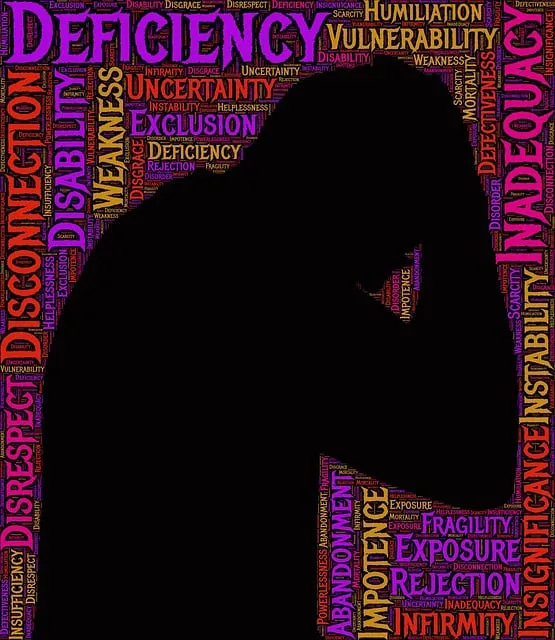Kaiser Permanente mental health Longmont offers comprehensive programs teaching emotion regulation techniques for both immediate crises and long-term resilience against challenges like burnout. They emphasize self-care through stress reduction, mindfulness practices, and emotional coping mechanisms, while working to reduce the stigma around mental illness. Their inclusive services cater to all individuals seeking assistance with their mental health, empowering them to manage emotions effectively, develop resilience, and improve overall wellness through consistent daily practice of learned techniques.
Emotion regulation techniques are essential tools for maintaining mental well-being, as highlighted in recent programs at Kaiser Permanente Longmont. This article delves into the process of understanding and mastering these skills, offering practical strategies for effective emotion management. We explore how such learning transforms lives and relationships, providing tips for incorporating these techniques into daily routines, all grounded in the successful experiences at Kaiser Permanente Longmont’s mental health services.
- Understanding Emotion Regulation: Unlocking Mental Well-being at Kaiser Permanente Longmont
- Teaching Techniques: Practical Strategies for Effective Emotion Management
- The Impact of Learning: How These Skills Transform Lives and Relationships
- Implementing and Practicing: Tips for Incorporating Emotion Regulation into Daily Life
Understanding Emotion Regulation: Unlocking Mental Well-being at Kaiser Permanente Longmont

At Kaiser Permanente Longmont, understanding emotion regulation is seen as a cornerstone of mental well-being. Through various programs and services, the organization aims to equip individuals with effective techniques to navigate and manage their emotions healthily. This involves not just addressing acute emotional crises but also fostering long-term resilience against mental health challenges such as burnout, which can significantly impact one’s quality of life.
In today’s fast-paced world, developing a robust self-care routine is crucial for maintaining mental health. Kaiser Permanente Longmont recognizes this need and offers resources tailored to help individuals incorporate stress reduction strategies, mindfulness practices, and emotional coping mechanisms into their daily lives. Additionally, the organization remains committed to Mental Illness Stigma Reduction Efforts, ensuring that its services are inclusive and supportive of all those seeking assistance with their mental well-being.
Teaching Techniques: Practical Strategies for Effective Emotion Management

Teaching techniques play a pivotal role in empowering individuals to manage their emotions effectively. At Kaiser Permanente mental health Longmont, we emphasize practical strategies that foster emotional well-being promotion techniques. Our approach combines evidence-based practices with compassionate guidance, ensuring individuals have the tools to navigate life’s challenges with resilience.
Through crisis intervention guidance and tailored teaching methods, our experts help clients develop coping mechanisms tailored to their unique needs. By integrating these skills into daily routines, individuals can better regulate emotions, reduce stress, and enhance overall mental health awareness. This proactive approach not only helps in managing current emotional crises but also equips people with long-lasting strategies for maintaining stability and promoting positive emotional states.
The Impact of Learning: How These Skills Transform Lives and Relationships

Learning emotion regulation techniques can profoundly transform lives, according to Kaiser Permanente mental health Longmont experts. By equipping individuals with the skills to manage their emotions effectively, these practices enable better decision-making under stress and foster healthier relationships. People who cultivate emotional resilience are better equipped to handle challenging situations, leading to improved overall mental wellness as supported by various Mental Wellness Podcast Series Production content.
This transformation extends beyond individual benefits. As people become more adept at regulating their emotions, they can enhance empathy and understanding in their relationships. Compassion Cultivation Practices, for instance, encourage individuals to cultivate kindness and openness towards themselves and others, leading to deeper connections and more supportive social networks. This ripple effect of positive change can create a more compassionate and resilient community overall.
Implementing and Practicing: Tips for Incorporating Emotion Regulation into Daily Life

Implementing emotion regulation techniques requires consistent practice to effectively navigate daily life’s challenges. Start by identifying triggers and emotions; keep a journal to track patterns and understand your responses. Incorporate mindfulness exercises like deep breathing or meditation into your routine, as these practices help calm the mind and body.
Kaiser Permanente mental health Longmont offers valuable resources for learning and practicing emotion regulation. They suggest setting aside dedicated time each day for self-reflection and techniques such as progressive muscle relaxation to release tension. Building a consistent practice may also involve incorporating physical activity or creative outlets, which can boost your self-esteem improvement and serve as healthy distractions during stressful periods. Remember, preventing depression and burnout involves proactive management of emotions, and these strategies are essential tools in your emotional well-being toolkit.
Emotion regulation techniques, as taught by Kaiser Permanente Mental Health professionals in Longmont, offer a powerful toolset for enhancing well-being and fostering healthier relationships. By understanding emotional responses and learning practical strategies, individuals can navigate life’s challenges with greater resilience and composure. The impact of these skills is profound, enabling people to transform their lives and create more meaningful connections. With consistent practice, emotion regulation becomes an invaluable asset, empowering folks to thrive in a complex world.






